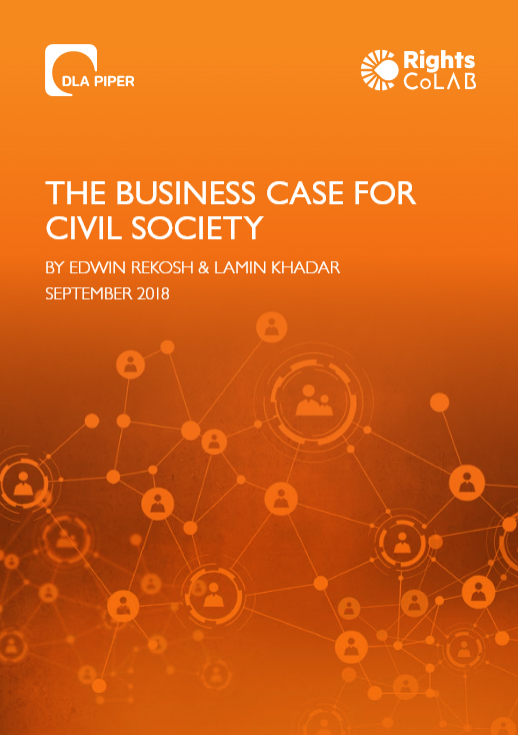Now more than ever, businesses have strong incentives to take seriously their responsibility to respect human rights. Human rights developments can spark stock price fluctuations, negative consumer attitudes and loud employee demands to take action. CEOs want to know how they should respond to human rights issues, and company directors are grappling with the same question in boardrooms across the world.
In developing their human rights policies and processes, companies have come to depend upon civic freedoms that enable civil society — citizens acting both individually and collectively — to reveal human rights impacts. Civic freedoms — including freedoms of expression, association, information and assembly — allow citizens to ask questions, express opinions, propose solutions to social problems, and press their own governments to keep commitments to protecting human rights.
The “Business Case for Civil Society,” explores reasons why it is in the best interest of companies to take action in support of civil society, especially when civil society is under pressure.
The report highlights eight arguments, backed by evidence, of the business case to support civil society:
- Civic freedoms advance economic growth
- Civic freedoms produce innovation
- Civil society reduces the cost of corruption
- Civil society organizations help businesses to be sustainable
- Supporting civil society can help manage risks relating to operational costs
- Supporting civil society can enhance customer relationships
- Supporting civil society can enhance investor relationships
- Supporting civil society can enhance employee relationships
“The Business Case for Civil Society” is a contribution to a collective research effort on behalf of the Business Network for Civic Freedoms and Human Rights Defenders, supported by the Business & Human Rights Resource Centre, International Service for Human Rights and The B Team. It is a companion report to “Shared Space Under Pressure: Business Support for Human Freedoms and Human Rights Defenders.”


